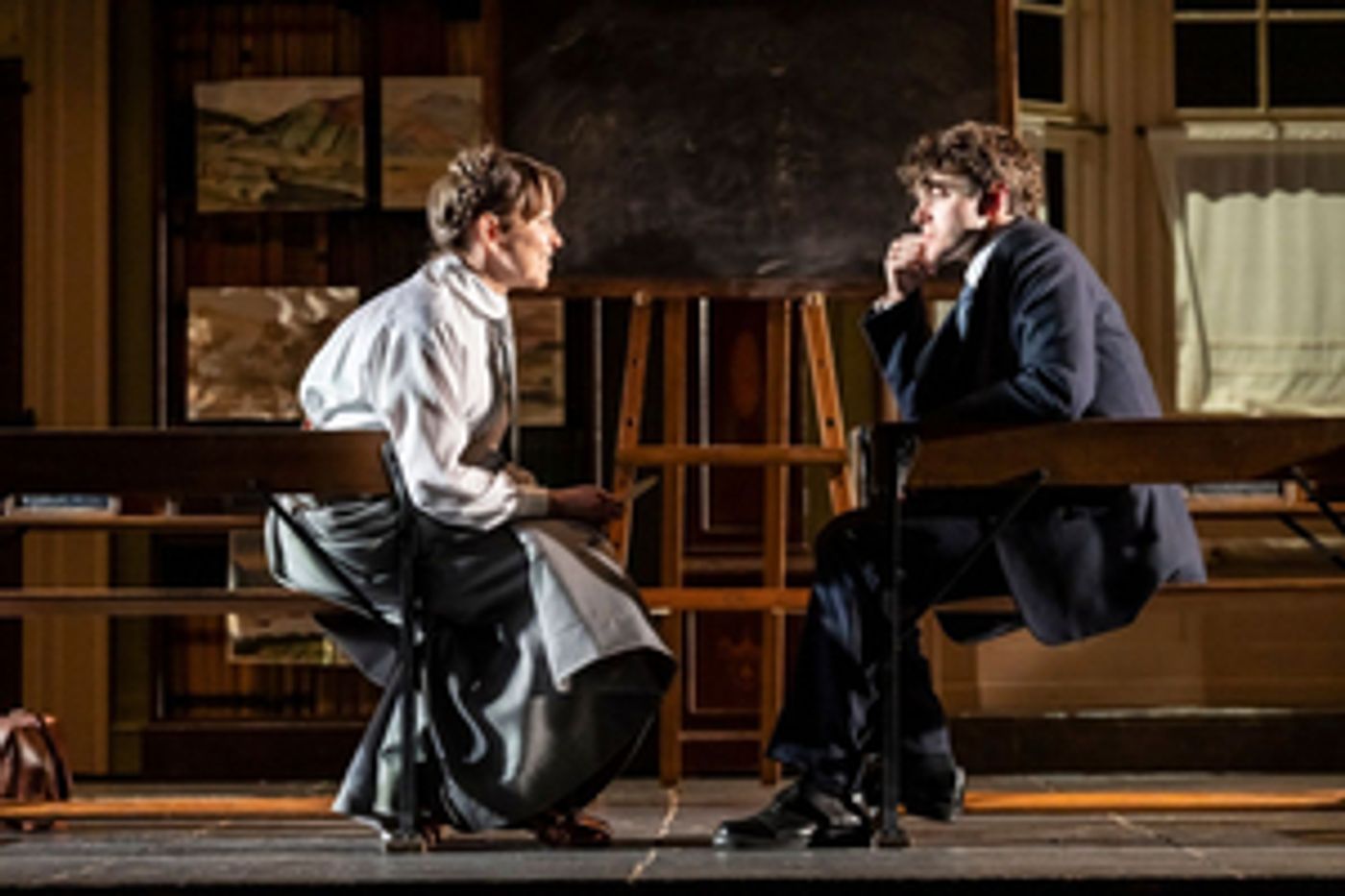Review: THE CORN IS GREEN, National Theatre
Nicola Walker carries a glossy production of Emlyn Williams' semi-autobiographical play

![]()
The National Theatre has formed a curious habit of reviving plays that are artistic fish out of water: social realist dramas with a strong sense of time and place but have now been left behind by the forward march of aesthetic taste and societal values.
First there was Rodney Ackland's Absolute Hell in 2018, then Githa Sowerby's Rutherford and Son in 2019, the former chronicling fear and loathing in post-World War Two London, the latter exploring the erosion of class in the shadow of industrial progress at the turn of the 20th century. And now Emlyn Williams' The Corn is Green, a semi-autobiographical play about a Welsh miner turned Oxford scholar, and the teacher who pushed him to reach his potential.
Director Dominic Cooke has given the play a postmodern tint in the form of an onstage tuxedo-clad Williams acting as the meta narrator carving his story like a sculptor from his own imagination and memory in real time. What starts as an indistinct block of marble, with the set completely stripped of pageantry or props, is gingerly chiselled at by Williams into an intricate living and breathing world of rural Wales.
By the end there is a lavishly detailed set, filling in the gaps that the audience's imagination once did. Williams, played by Gareth David-Lloyd, stands shoulder to shoulder with his own literary creations, tentatively feeding his characters lines and stage directions. This production's emphasis is firmly on the dialogue between writer, memory, and the nature of autobiography. But this contemporary gloss is not enough to inject a new life into an old play.
The story is plagued by caricatures and jarring plot points. Rufus Wright's Squire, a hapless PG Wodehouse-esque toff who is duped into sponsoring the young Morgan Evans, Williams' alter ego, is played for laughs because there is little else his character can do. Some narrative twists are contrived and feel included only to pad out the story; take the tangential unplanned pregnancy subplot, more Hollyoaks than serious piece of social commentary, that only serves to detract from the main theme of class.
Nicola Walker's understated ferocity as Miss Moffat is the epicentre of the play. She is the erudite and unpretentious teacher whose belief and dedication to Morgan's education galvanises him to ascend from the coal pits and up the social classes. Her stalwart performance is dignified, tender, and joyous to watch, especially alongside Morgan Evans, played by a youthful Iwan Davies. She even navigates tremendously Williams' clunky poetic polemics about social mobility and the benefits of assimilating into English culture.
As with Rutherford and Son and Absolute Hell, The Corn is Green had been on a long hiatus from London theatres before this National Theatre revival. It is easy to see why: without the gimmicks and theatrical artifice, the production would be stale. But then if that much directorial flair is needed, why revive it in the first place? The Corn is Green is not the searing commentary on education or class that it might have been when it premiered in the 1930s. It is well directed and masterfully performed, but it can only be as good as the script.
The Corn is Green is at The National Theatre until 12 June
Photography by Johan Persson
Reader Reviews
Videos

